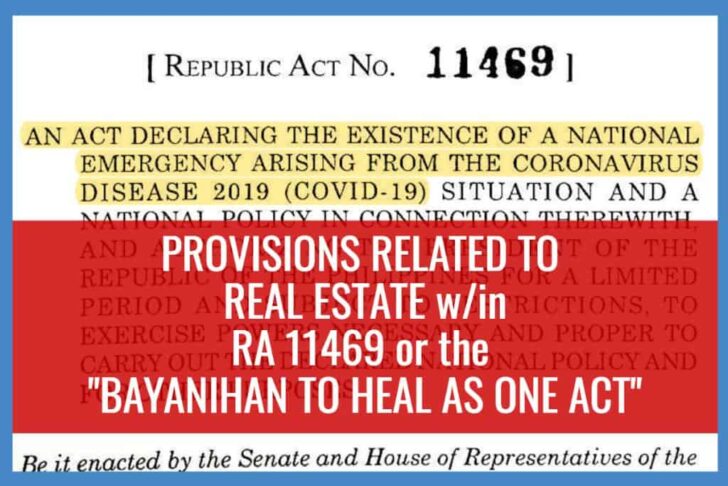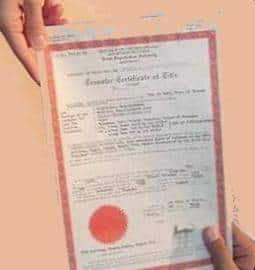* Update – Republic Act (RA) No. 9653, also known as the Rent Control Act of 2009, was signed into law last July 14, 2009. Salient features of RA 9653 can be found here while the full text of The Rent Control Act of 2009 can be found here.
*Update 2: The Rent control Act of 2009 has been extended until December 31, 2015, according to a press release from the Senate of The Philippines.
House not keen on extending rent control law – solon
By EDMER F. PANESAThe country’s rent control law expired last December 31 and there’s little chance of it being extended.
And should this happen, this could be bad news for tenants of apartments, boarding houses and dormitories as the increase in rental rates might be much higher than the increases in the past three years.
According to Parañaque City Rep. Eduardo Zialcita, the House of Representatives is not inclined to pass a new law that would extend the Rent Control Act of 2005.
The rent control law first took effect in 1999 and was extended twice, in 2002 and 2005. The law prevented unbridled increases in rents of residential units and gave protection to low-income tenants and boarders, especially students.
Zialcita, vice chairman of House Committee on Housing and Urban Development and one of the principal authors of the law, said they would allow the prevailing market forces to set the increase on rent this year.
“No more extensions,” he said. “Two extensions were enough. Let the market forces set the amount of the increase (of the rent).”
*This is just an excerpt, read the rest of the article here: Manila Bulletin
Well, from what I have learned from experienced real estate professionals, market forces basically dictate the rent. Even if there is no rent control law, landlords can’t just dictate a very high rent if the rental rates in the area are low. They’ll end up with no tenants for sure.
Of course, it may also be that the rent control law muffled the market rental rates, so with its non-extension, there is a possibility that landlords may increase rates consistent with market forces. Just remember that at the end of the day, a landlord needs tenants in the same way that tenants need landlords, so the landlord should not be too greedy and should only ask for rental rates that are fair and just under the circumstances.
As foreclosed real estate investors, we should all be aware of the laws affecting rentals as these affect the computations which we use to determine whether we should invest in a particular property or not. As the rent control law has just expired last December 31, and with the clamor from some sectors to extend it, it is still possible that this just might happen. I will monitor this issue and let you know of any developments so don’t forget to subscribe to my mailing list.
*The rent control act, also known as Republic Act No. 9341, is an act establishing reforms in the regulation of rent of certain residential units, providing the mechanisms therefor and for other purposes. You may read it in its entirety here: http://lawphil.net/statutes/repacts/ra2005/ra_9341_2005.html
* Update – Republic Act (RA) No. 9653, also known as the Rent Control Act of 2009, was signed into law last July 14, 2009. Salient features of RA 9653 can be found here while the full text of The Rent Control Act of 2009 can be found here.




![R. A. 9510 [Credit Information System Act (CISA)] 2 Credit Report](https://www.foreclosurephilippines.com/wp-content/uploads/2015/07/Credit-Report-2-432x378.jpg)




Hi Sir, I just want to know if there is an amendment concerning rental rate increases? A friend of mine says that it was amended to a max of 4% rather than 7%? And can only be increased every 3 years? Please advise… Thanks and God bless…
I live in San Jose City, N.E., and all my apartment rents are under PHP3,000 per month, excepting utilities. Does this rent control act apply to me?
How can I stay out of bankruptcy when this rent control act actually ENCOURAGES deadbeats to go two months or more without worrying about paying their rent and utilities? How can I get a case into court when people just won’t pay their obligations?
Here in San Jose City, N.E. they say I can’t file in court until I get “certification” (permission) from the barangay! But I believe the barangay is only a voluntary adjudicator, not a governmental body, thus it is my belief that requiring me to first go through them violates our Constitutionally guaranteed RIGHT to seek redress of grievances from the GOVERNMENT. (The barangay is not government, is it?)
In a case where someone owes my wife over PHP37,000 and simply won’t pay, the barangay system here have already wasted FIVE YEARS of my wife’s precious time, have not resolved her problem after repeated lame attempts, they just want to spend years “talking” about it, and for five long years refuse to give her the certification to go to court . I’m afraid that the barangay will waste my time and cost me money too, just as they did to my wife.
I do NOT want to be forced to deal with any uneducated and arrogant barangay officials AT ALL, since they are NOT law school graduates and have no real idea what the law actually says – all they do is talk nonsense and waste my time with their narcissistic self-importance and their personal “opinions”. I don’t care about their opinions. I can’t eat barangay opinions or tenant excuses. Barangay opinions and tenant excuses don’t pay the bills or taxes. I have some tenants owing over five months of rent, and in two days it’ll be six months! The barangay system is a harmful impediment to justice. So how can I get around the useless barangay system and go directly to court?
HELP!
so does the rent control law still exist or am I free to raise rent to a fair market value now
Hi Paul, it was supposed to end last December 31, 2013 but it was just extended for another 2 years. You can read about it here: http://newsinfo.inquirer.net/548597/rent-control-act-of-2009-extended-for-2-more-years
By the way, if your property is in Metro Manila and you already charge a monthly rent above Php10,000.00, or If your property is located in other urban cities and you already charge a monthly rent above Php5,000.00, then your property is NOT covered by the rent control law, and you are free to raise your rental rate to the fair market value. Cheers!
marami salamat Jay, I have a property outside of Angeles City so I will consider this an urban city.
You’re welcome Paul, it’s always nice to see a fellow real estate investor here. By the way, happy new year!
Nice info.
Hell Tyrone, you’re welcome and thanks also for visiting. I just saw the comments and I was expecting such and I also think they are accountants, I should know, I married one. =)
Hi Jay, thanks a lot for dropping and leaving comments on my blog. By the way, there are good points raised on my article “House: Asset or Liability”. I think they are probably accountants. 🙂